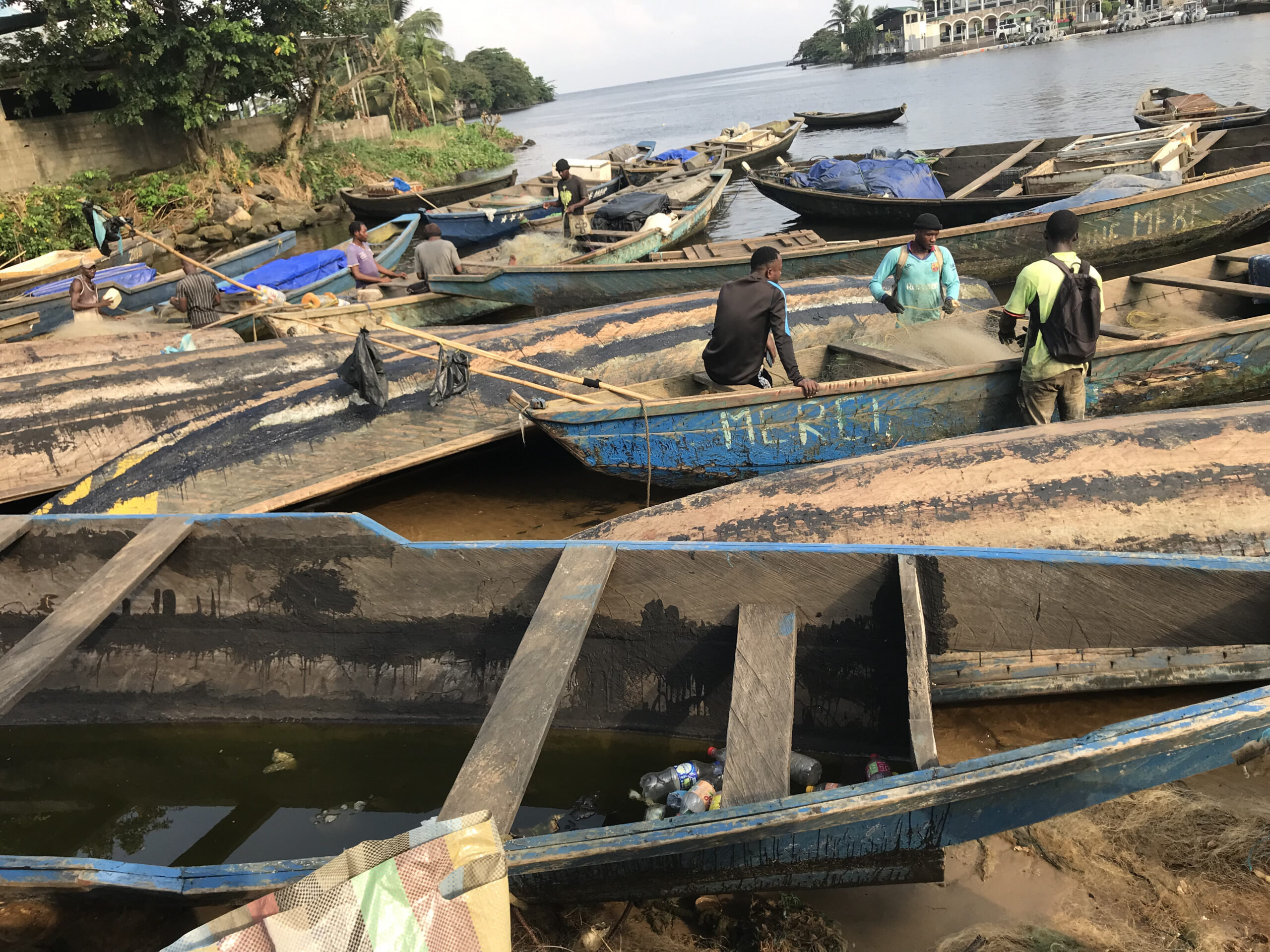By Leocadia Bongben
Trawlers are the only thing that could make Fabrice Junior Nguele Bolo so terrified at sea that he would give up fishing and flee for his life.
Following a seven-hour boat voyage from Kribi to Mbiako-in Yoyo, a tiny island in the South region between Sanaga and Dibamba, Nguele Bolo spotted eight trawlers in an artisanal fishing zone.
“The trawlers had crossed over my net and cut it at night. To avoid trawlers’ harassment, I collected the net and headed out. I could not fish.” Ngele Bolo Fabrice Junior recounts his experience with a trawler at sea.
Traveling that far to Yoyo, he used about 40 liters of fuel only to find his net destroyed by trawlers.
Nguele Bolo recounts how, three years ago, a fisherman who worked for him was killed by trawlers.
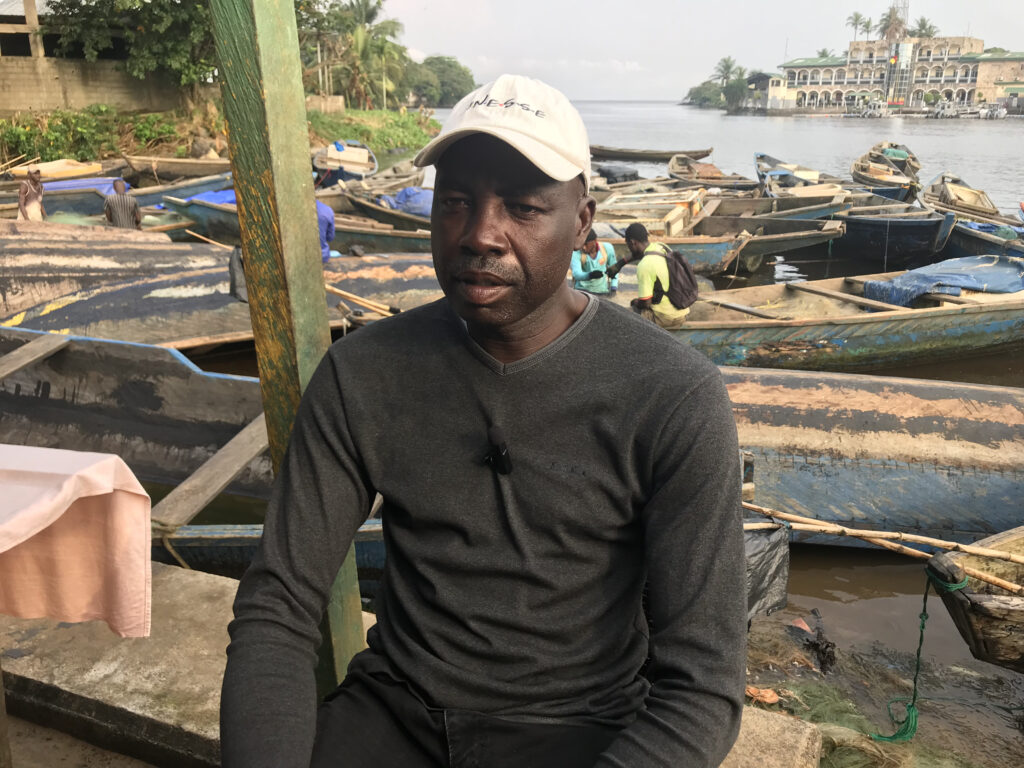
Salleh Josely, another fisherman, also displays strong emotions while talking about trawlers, especially those owned by Chinese people.
He feels the situation with trawlers at sea is worse. When the Mboa Manga landing station opened, there were between 100 and 300 fishing boats, and ten of the boats could run into trouble with trawlers. Currently, trawlers cause problems for around 100 boats every month, he said.
Salleh tells Cameroon Factfinder, “The trawlers come when they see a group of fishermen, knowing we have an idea where to look for fish.”
“They cut our nets. They make us uncomfortable; we can’t meet our needs. We can’t do our job normally because of the Chinese cruelty, which is common in the fishing area of the small boats.”
When the Japanese Embassy and the Ministry of Fisheries recently visited to provide equipment to the fishermen, they took advantage to inform the authorities of the cruelty of Chinese trawlers at sea.
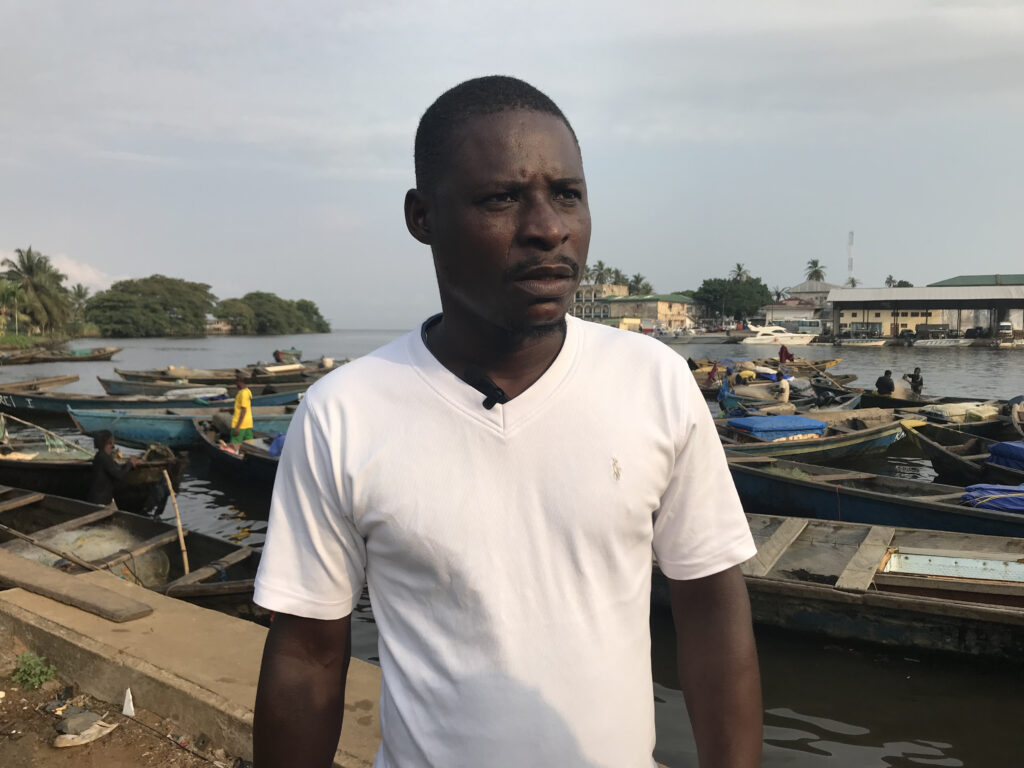
“We complained to the Minister and the delegate, and they promised to improve the situation. Until today, the situation has not improved.”
A recent report by the Environmental Justice Foundation, EJF: Inside IUU Fishing and Labor Rights Abuses in Cameroon’s Industrial Fishing Sector highlights trawler incursion into artisanal fishing reserved zones and Marine Protected Areas as an aspect of illegal, unreported, and unregulated fishing in Cameroon.
“EJF reported several trawlers fishing illegally within three nautical miles of the coast up close. The report quotes satellite data, which indicates trawling within the artisanal fishing zone takes place practically everywhere along the coastline and within maritime protected zones (MPAs). Also, according to their analysis, industrial vessels have engaged in about 78,400 hours of fishing within Cameroon’s reserved zones since 2020, primarily in the southwest and littoral zones.
The activities of trawlers impact fish populations and marine ecosystems. Fishermen like Salleh Josely indicate that their catches have decreased over time due to the activities of trawlers involved in industrial fishing.
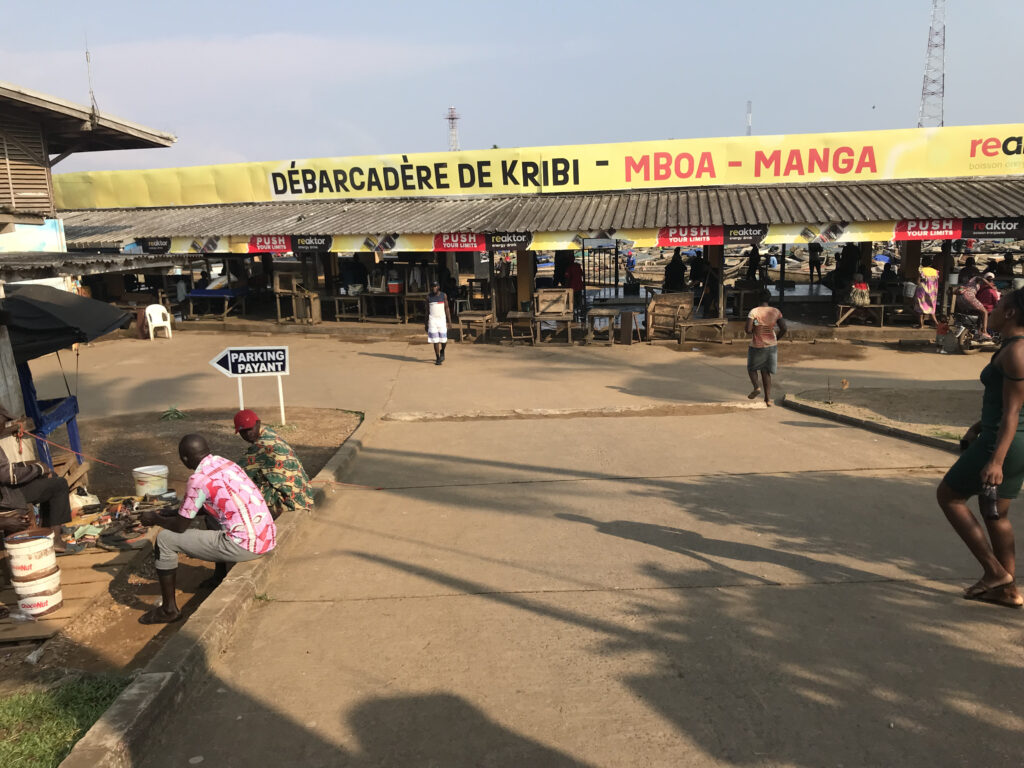
Although there is insufficient data to determine the extent of exploitation of important fish populations in Cameroonian waterways, researchers from the Agricultural Research Institute for the Development of Cameroon (IRAD) have documented a sharp drop in fish populations, the EJF report suggests.
Cameroon has a 400km coastline rich in biodiversity, including emblematic species such as the African manatee, dolphins, marine turtles, and more than 40 species of sharks and rays. However, this vital ecosystem is threatened by major challenges: plastic pollution, illegal, unreported, and unregulated (IUU) fishing, destruction of marine habitats, and a lack of appropriate governance.
The situation has been exacerbated by outdated regulations and a lack of effective monitoring of industrial fishing activities. These challenges have led to economic sanctions, including a ‘red card’ from the European Union in 2023, resulting in economic losses estimated at more than FCFA 50 billion per year, according to the African Marine Mammal Conservation Organization, AMMCO.
Faced with these challenges, the Street Whale Festival offers a unique opportunity to bring together local, regional, and international stakeholders to discuss and implement innovative solutions.
The fourth edition of the Street Whale Festival held in the coastal city of Kribi from December 4-7, under the theme, “Harnessing Ocean Potential – Synergies for Sustainable Marine, Ecosystem, and Local Economic Development, emphasizing the importance of sustainable practices that benefit both marine ecosystems and local communities.”
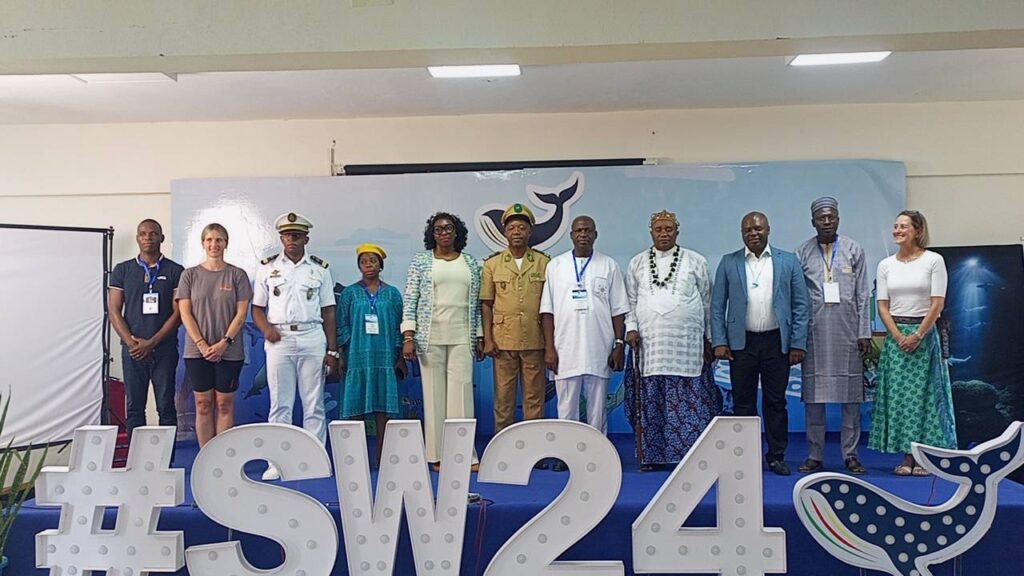
In his presentation, Younoussa Abbosouka, EJF Cameroon representative, stated that artisanal fisheries generate 84% of Cameroon’s fish production, yet despite their critical role in supplying fish products to Cameroon’s population, the fishing communities are not always involved in decision-making concerning the management of coastal fisheries resources.
Moreover, many artisanal fishers have minimal access to government services as they are not Cameroonian nationals and do not hold a residency permit. Coastal communities have been reporting the impacts of illegal incursions by the industrial fishing fleet for decades, yet little progress has been achieved to remedy this situation.
Other aspects of illegal fishing, according to the EJF report, are fishing without licenses, use of unselective nets, by-catch, and discard.
To reduce IUU fishing, bolster its monitoring, control, and surveillance (MCS) systems, and increase transparency in the fisheries industry, EJF has been assisting the Cameroonian government through the Ministry of Livestock, Fisheries, and Animal Industries, MINEPIA.
This assistance is a component of a project in collaboration with AMMCO and MINEPIA. To preserve the biodiversity of the Douala-Edéa National Park and improve community management and participatory surveillance, EJF is also collaborating with the MINEPIA and the Cameroon Wildlife Conservation Society (CWCS).
Against this backdrop, Cameroon has made progress toward fishing transparency. For the second consecutive year, MINEPIA has published licenses for vessels flying the Cameroon flag. However, most of the vessels belong to the Chinese.
The Cameroon parliament adopted a new fisheries law in early December, and there is hope that fishers’ complaints will be addressed.
According to Viviane OMGBA, Engineer at MINEPIA, the new law projects a better future.
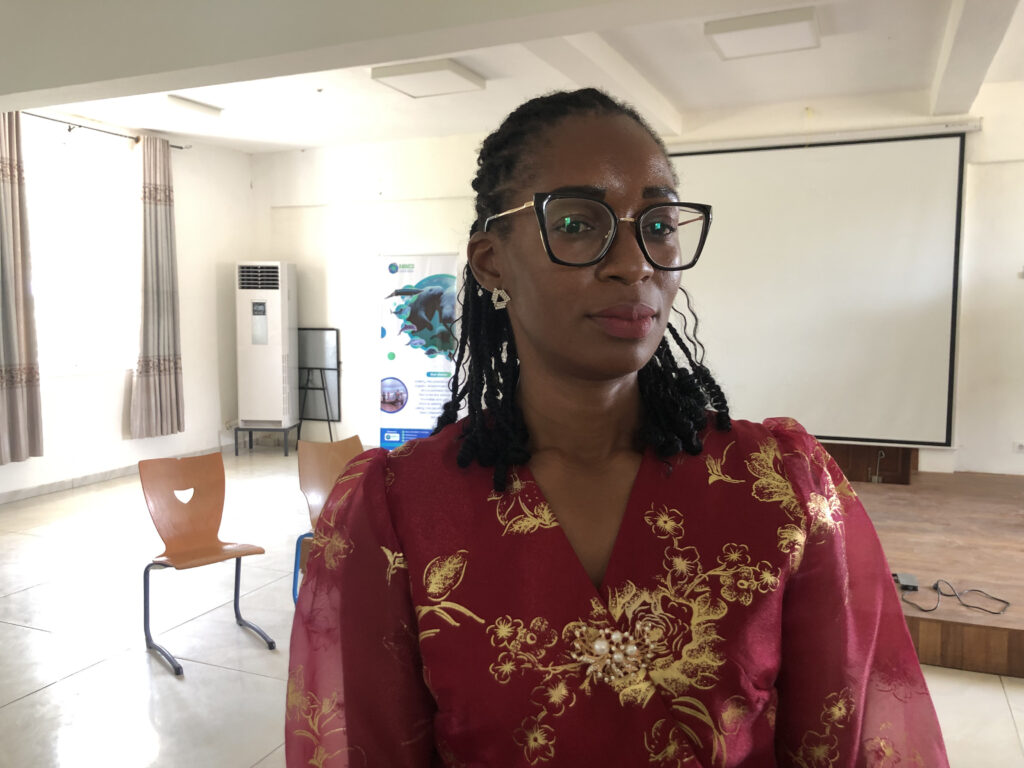
“The new law integrates the different aspects that did not exist in the 1994 law. The new law integrated the relevant provisions of the agreement on measuring the resources of the state of the port. A whole chapter is dedicated to follow-up, control, and monitoring, which will now frame the monitoring of fishing activities.”, she said.
Criminal provisions have been increased and Omgba thinks the sanctions of the previous law were not dissuasive enough compared to the present law. She hopes the new law will help to better manage and regulate the fishing sector.
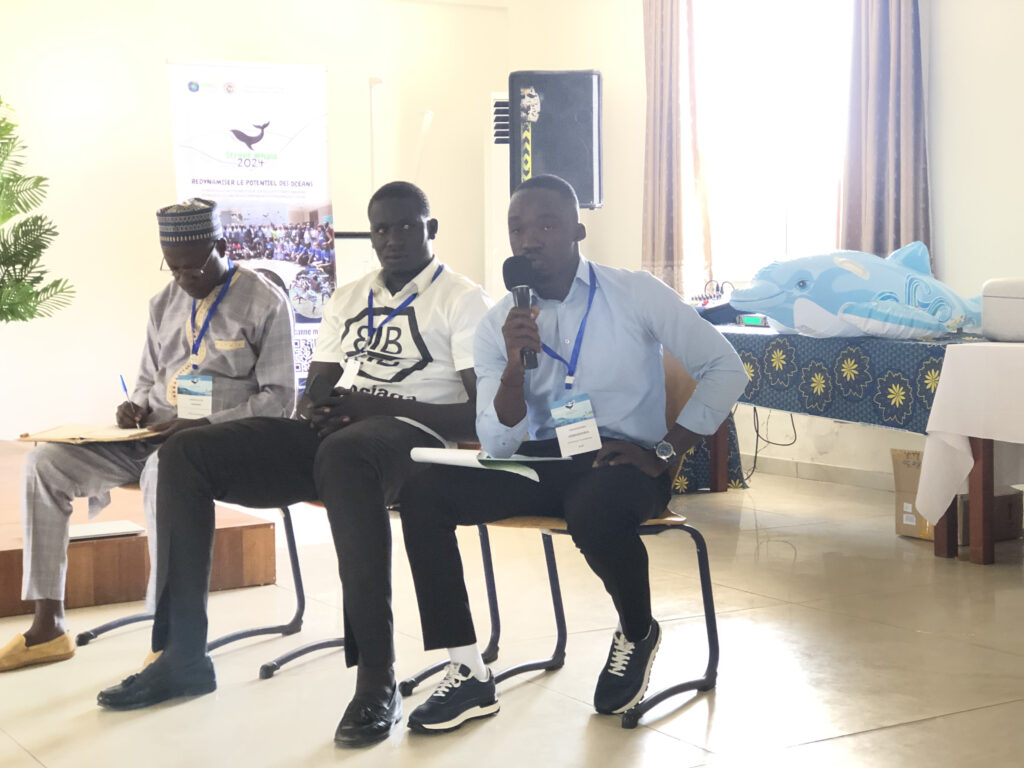
For Younoussa, the adoption of the new law marks a positive step forward in improving transparency and governance in fisheries. However, it is equally important that the law is effectively implemented to promote transparency in the industrial fishing sector while protecting artisanal fishermen and coastal communities.

